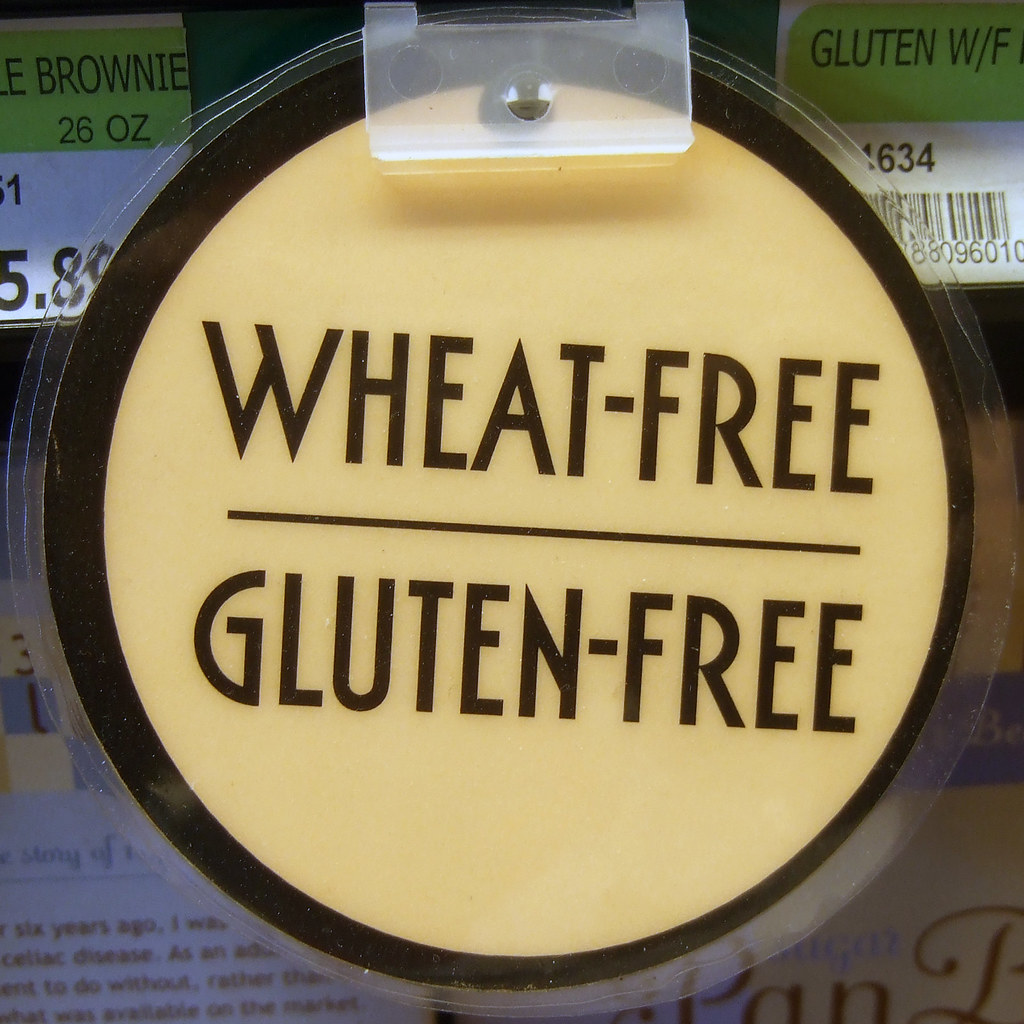Benefits of Living Gluten-Free – Gluten-free has been a buzzword in the health and wellness industry for some time now. Many people are adopting a gluten-free lifestyle, either by choice or necessity. Whether you are gluten intolerant, have celiac disease, or simply want to eliminate gluten from your diet for health reasons, living gluten-free can be challenging. In this comprehensive guide, we will take a closer look at what gluten is, why people choose to live gluten-free, and provide tips on how to adopt a healthy and balanced gluten-free lifestyle.
Table of Contents
- What is Gluten?
- Gluten Sensitivity vs. Celiac Disease
- Common Foods Containing Gluten
- Benefits of Living Gluten-Free
- Tips for Living Gluten-Free
- Gluten-Free Meal Planning and Recipes
- Gluten-Free Substitutes for Everyday Foods
- Eating Out and Traveling on a Gluten-Free Diet
- Living Gluten-Free on a Budget
- Gluten-Free and Nutrient Deficiencies
- Gluten-Free and Weight Loss
- The Emotional Side of Living Gluten-Free
- The Importance of Support and Resources
- Myths and Misconceptions about Gluten-Free Living
- Frequently Asked Questions
What is Gluten?
Gluten is a protein found in wheat, barley, and rye. It is what gives dough its elasticity and helps it rise. Gluten is present in many everyday foods, including bread, pasta, cereal, and beer. It is also used as a thickening agent in many processed foods.
Gluten Sensitivity vs. Celiac Disease
Gluten sensitivity and celiac disease are two different conditions, although they are often used interchangeably. Gluten sensitivity is a condition where an individual experiences symptoms after consuming gluten, such as bloating, gas, and fatigue. Celiac disease, on the other hand, is an autoimmune disorder where the ingestion of gluten leads to damage to the small intestine. Celiac disease can cause a wide range of symptoms, including abdominal pain, diarrhea, and anemia.
Common Foods Containing Gluten
Many foods contain gluten, and it can be challenging to avoid it completely. Some common foods that contain gluten include:
- Bread and baked goods
- Pasta and noodles
- Cereal and granola
- Crackers and pretzels
- Beer and other alcoholic beverages
- Processed meats
- Soy sauce and other condiments
- Sauces and gravies
Benefits of Living Gluten-Free
There are several benefits to living gluten-free, including improved digestion, increased energy levels, and reduced inflammation. For individuals with celiac disease or gluten sensitivity, eliminating gluten from their diet can lead to a significant improvement in their symptoms. A gluten-free diet can also be beneficial for individuals with other autoimmune disorders, such as Hashimoto’s thyroiditis and rheumatoid arthritis.
Tips for Living Gluten-Free
Living gluten-free can be challenging, but it is possible with some planning and preparation. Some tips for living gluten-free include:
- Educate yourself about gluten-free living
- Plan meals and snacks in advance
- Read food labels carefully
- Choose naturally gluten-free foods, such as fruits, vegetables, and lean protein sources
- Experiment with gluten-free substitutes for your favorite foods
- Be prepared when eating out or traveling
Gluten-Free Meal Planning and Recipes
Meal planning is an essential part of living gluten-free. Planning your meals in advance can help ensure that you are getting all of the nutrients you need and can help you avoid the temptation to eat gluten-containing foods. There are plenty of gluten-free recipes available online, including gluten-free versions of your favorite foods.
Gluten-Free Substitutes for Everyday Foods
There are many gluten-free substitutes available for everyday foods, such as bread, pasta, and flour. Some popular gluten-free substitutes include:
- Brown rice flour
- Almond flour
- Quinoa
- Gluten-free pasta made from rice or corn
- Gluten-free bread made from tapioca, potato, or rice flour
- Coconut aminos as a substitute for soy sauce
It’s important to note that some gluten-free substitutes may not be as nutritious as their gluten-containing counterparts. It’s essential to choose substitutes that are high in fiber, vitamins, and minerals.
Eating Out and Traveling on a Gluten-Free Diet
Eating out and traveling can be a challenge when living gluten-free. It’s essential to do some research before dining out to find restaurants that offer gluten-free options. Many restaurants now have gluten-free menus or can modify menu items to make them gluten-free. When traveling, it’s a good idea to bring gluten-free snacks and research gluten-free options in the area.
Living Gluten-Free on a Budget
Living gluten-free can be expensive, but there are ways to save money while still maintaining a healthy gluten-free lifestyle. Some tips for living gluten-free on a budget include:
- Buying in bulk
- Choosing naturally gluten-free foods
- Cooking meals from scratch
- Utilizing coupons and discounts
- Planning meals in advance
Gluten-Free and Nutrient Deficiencies
Eliminating gluten from your diet can lead to nutrient deficiencies if you’re not careful. Gluten-containing grains, such as wheat, are a significant source of B vitamins, iron, and fiber. It’s important to incorporate gluten-free sources of these nutrients into your diet, such as:
- Brown rice
- Quinoa
- Chickpeas
- Leafy greens
- Nuts and seeds
Gluten-Free and Weight Loss
Many people adopt a gluten-free diet in the hopes of losing weight. While a gluten-free diet can be beneficial for weight loss, it’s important to remember that not all gluten-free foods are healthy. Some gluten-free products are high in sugar and calories and can contribute to weight gain. It’s important to choose nutrient-dense, whole foods when living gluten-free.
The Emotional Side of Living Gluten-Free
Living gluten-free can be emotionally challenging, especially when first starting. It can be isolating to be the only person at a party or event not eating certain foods. It’s essential to find a support system and connect with others who are also living gluten-free. There are many online communities and support groups available for individuals living gluten-free.
The Importance of Support and Resources
Living gluten-free can be overwhelming, but there are many resources available to help make the transition easier. Some resources for living gluten-free include:
- Gluten-free cookbooks and recipe websites
- Online communities and support groups
- Registered dietitians who specialize in gluten-free living
- Gluten-free blogs and social media accounts
Myths and Misconceptions about Gluten-Free Living
There are many myths and misconceptions about gluten-free living, including:
- Gluten-free means healthy
- A gluten-free diet is necessary for weight loss
- All gluten-free products are healthy
- Gluten-free is a fad diet
It’s important to remember that gluten-free living is not a one-size-fits-all solution and may not be necessary for everyone.
Conclusion
Living gluten-free can be challenging, but it’s possible to adopt a healthy and balanced gluten-free lifestyle. By educating yourself about gluten-free living, planning meals and snacks in advance, and utilizing resources and support, you can successfully navigate a gluten-free lifestyle. Remember to choose nutrient-dense, whole foods and experiment with gluten-free substitutes for your favorite foods.
FAQs
Is a gluten-free diet necessary for everyone?
- No, a gluten-free diet is only necessary for individuals who have a gluten intolerance, sensitivity, or celiac disease.
Are all gluten-free products healthy?
- No, not all gluten-free products are healthy. Some gluten-free products can be high in sugar, calories, and unhealthy fats. It’s important to choose nutrient-dense, whole foods when living gluten-free.
Can a gluten-free diet lead to nutrient deficiencies?
- Eliminating gluten from your diet can lead to nutrient deficiencies if you’re not careful. It’s essential to incorporate gluten-free sources of important nutrients, such as B vitamins and iron, into your diet.
Can living gluten-free be expensive?
- Yes, living gluten-free can be expensive, but there are ways to save money while still maintaining a healthy gluten-free lifestyle. Some tips for living gluten-free on a budget include buying in bulk, choosing naturally gluten-free foods, and cooking meals from scratch.
Is a gluten-free diet beneficial for weight loss?
- A gluten-free diet can be beneficial for weight loss, but it’s important to remember that not all gluten-free foods are healthy. Some gluten-free products are high in sugar and calories and can contribute to weight gain. It’s important to choose nutrient-dense, whole foods when living gluten-free.




